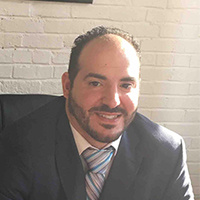 Orefield RICO Act Lawyers, Pennsylvania
Orefield RICO Act Lawyers, Pennsylvania
Sponsored Law Firm
-
 x
x

Click For More Info:
Call for Free Consultation
-
Law Offices of Christopher Bokas
20 West Third Street Media, PA 19063 » view mapCriminal Defense, DUI, Felonies, Misdemeanors Why Christopher Bokas?
At Law Offices of Christopher Bokas, we offer services in Criminal Law and Bankruptcy Law. With over 35 years of experience in the field I can help you.
800-997-6550  Christopher Bokas Media, PA
Christopher Bokas Media, PAAttorney At Law - PA, 1975
University of Baltimore School of Law
Not enough matches for Orefield RICO Act lawyer.
Below are all Orefield Criminal lawyers.
Sponsored Lawyers
1-10 of 14 matches
Bankruptcy & Debt, Real Estate, Immigration, Criminal, Business
If you are experiencing financial difficulties, you do not have to work through them alone. The Laputka Law Office focuses on your debt/credit related issues. Our clients come from all walks of life. We understand that every client is different and that every client’s problems require individual attention and a personalized solution. Our guarantee to YOU, our client, is that we will offer you the best personalized solution to your problems at prices anyone can afford.
(more)Criminal
As a former Luzerne County Assistant District Attorney, Albert prosecuted many criminal cases before setting his sights on criminal defense and immigration assistance. Albert's years of experience make him an outstanding choice to represent you with all of your legal needs.
(more)




 Christopher Bokas Media, PA
Christopher Bokas Media, PA


